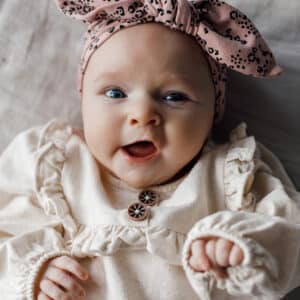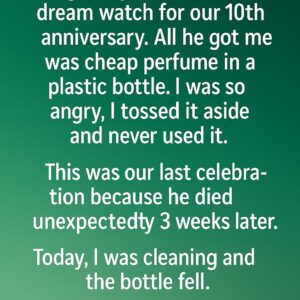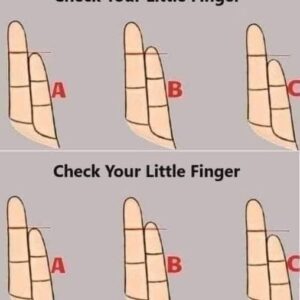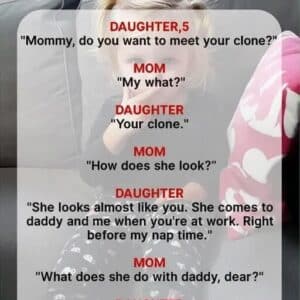Two days before payday, with $27 in my account and a toddler welded to my hip, I was in the checkout line praying for five quiet minutes. No tantrums, no surprises.
Owen reached for the sour worms with the confidence of a jewel thief.
“Not today, buddy,” I whispered. “Next time.”
In front of us, a woman in her late seventies watched each beep on the screen like it might bite. Bread, milk, potatoes, a small apple pie. When the total popped up, she hesitated, then slid her card.
Declined.
She tried again. Declined.
Someone behind me sighed loudly. “It’s always someone.”
“If you can’t afford groceries, try a soup kitchen,” another voice snapped.
The woman’s cheeks went pink. “I can put the pie back,” she told the cashier.
“Don’t,” I heard myself say. “I’ve got it.”
She turned, startled. Her eyes were glossy and proud. “You don’t have to, dear.”
“Please let me,” I said, tapping my card. It went through. She exhaled, small and shaky, and gripped the pie like it was breakable. Owen waved. “Bye, Grandma! Have a good day!”
“You too, sweet boy,” she said, and left.
Two days later, I walked into the same store and stopped dead. Near the community board was a printed still from a security camera: me, messy bun, Owen grinning on my hip. Taped above it, a note in careful handwriting:
Please call me. You helped my mom, and we want to thank you.
Being pinned to a bulletin board for something private felt… wrong. I asked the manager to take it down, stuffed it in my bag, and took Owen home. That night, when he fell asleep on the couch with chocolate milk on his shirt, I dialed the number anyway.
“Hello?” a man answered.
“I saw my photo in the store,” I said, more defensive than I meant to. “You can’t just post people’s faces.”
“You’re the woman with the little boy?” Relief softened his voice. “Thank you for helping my mom. Would you meet us? She’d like to thank you properly.”
Something about his tone made me say yes.
We met at a small coffee shop that smelled like cinnamon. The woman from the store walked in wearing a neat blue cardigan and a wide, grateful smile. Beside her was the man from the phone—her son.
“I’m John,” he said, offering his hand. “This is my mom, Margaret.”
“I’m Monica,” I said. “And this is the muffin vacuum, Owen.”
We all laughed. Then Margaret told me what happened. Her card hadn’t worked because it had expired. She didn’t realize until the line turned mean.
“You reminded me kindness isn’t gone,” she said, placing her hand over mine. “You didn’t just pay for groceries. You made me feel seen.”
“I didn’t do it for attention,” I said, swallowing hard. “I just know what it’s like to feel small in public.”
“That’s why I want to give something back,” she said gently. “Your little one called me Grandma. It stuck. I’d like to open a savings account in Owen’s name—ten thousand to start. For his future.”
I stared at her. “I can’t accept that.”
“You can,” she said, eyes bright. “It’s not charity. It’s gratitude. He deserves a better start, and we can help.”
I didn’t mean to cry, but relief has a way of cracking you open. After coffee, John walked us home. We weren’t far, but he insisted on buying Owen another muffin “for research purposes.”
We talked the whole way. Real talk, not small talk. In the space between the jokes and the silences, the outlines of our lives slipped into view.
“My wife left six months ago,” John said quietly. “Met someone else. I’ve been spending more time with Mom since.”
“My husband left when Owen was one,” I said. “Needed ‘space,’ which turned out to be another woman.”
“I’m sorry,” he said.
“Me too,” I said. And somehow, it was enough—two people who’d been cracked in similar places recognizing the shape of the other’s break.
Coffee turned into dinners that turned into shared ice cream cones on sticky evenings. Owen adored John immediately. Slowly, I did too. Margaret, of course, was delighted. She never said it outright, but her dinners always had four plates.
“I saw it in John’s eyes the first day,” she told me later in her garden, sunlight threaded through the hydrangeas. “He didn’t say anything, but a mother knows.”
“I think I knew, too,” I admitted, watching Owen tear across the grass. “I just didn’t trust it yet.”
“Trust is earned,” she said, squeezing my hand. “You did right to wait.”
A year after the grocery store, we got married under the oak in Margaret’s backyard. It was simple and real. Owen wore a tiny navy bow tie and clutched the ring pillow like it was state secrets. Three months later, John adopted him.
“Does this mean I get to call him Dad now?” Owen whispered that night.
“You already do, baby,” I said.
Sometimes he still asks at bedtime, “Mommy, remember when we met Grandma Margaret at the store?”
I always smile. “Of course I remember.”
Because it wasn’t just an apple pie and a broken card reader. It was a kindness offered with $27 in my account and a toddler on my hip, and a stranger who saw me seeing her—and decided to change our lives right back. It was the end of what I thought I had to settle for, and the beginning of a life that fits.
One small yes at a checkout line, and everything shifted.





